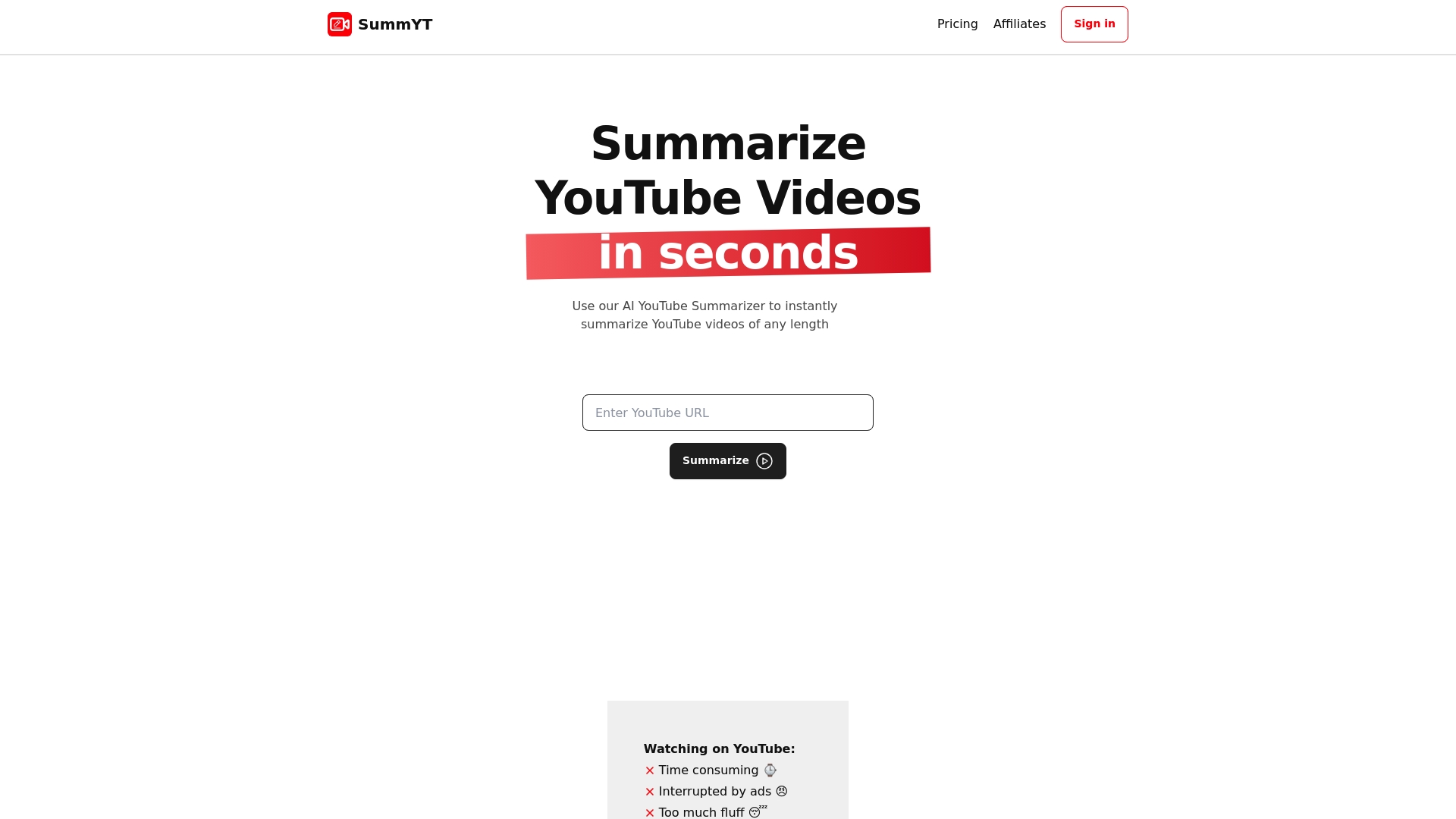Understanding Why Concise Summaries Matter in Communication

Concise summaries have become the lifeline for anyone trying to make sense of huge piles of information. Some studies show that professionals can cut down up to 80% of their reading time just by using these streamlined overviews. You might expect shorter summaries to leave out important details, but in reality, they often make the main ideas clearer and easier to remember.
The following table summarizes the key characteristics that define effective concise summaries, organizing them for easier comparison and reference.
| Characteristic | Description |
|---|---|
| Brevity | Conveys maximum information with a minimum number of words |
| Clarity | Uses precise language that avoids ambiguity |
| Comprehensiveness | Includes essential ideas while omitting unnecessary details |
| Objectivity | Maintains the original tone and intent without personal bias |
| Logical Flow | Organizes ideas in a way that enhances readability and context |
Table of Contents
- The Essence Of Concise Summaries: What Are They?
- The Importance Of Clarity: Why Concise Summaries Matter
- Efficiency In Communication: How Concise Summaries Work
- Key Elements Of Effective Concise Summaries
- Real-World Applications Of Concise Summaries
Quick Summary
| Takeaway | Explanation |
|---|---|
| Concise summaries enhance communication efficiency | They condense complex information, enabling faster comprehension and decision-making in various contexts. |
| Brevity maintains clarity and comprehension | Shorter texts reduce the cognitive load, making it easier for readers to absorb key concepts. |
| Effective summaries prioritize essential information | They focus on main arguments and supporting points while omitting unnecessary details to retain original meaning. |
| Summaries are critical in professional environments | They save time by facilitating rapid knowledge transfer, enhancing teamwork and reducing miscommunication risks. |
| Structure is key in creating impactful summaries | Organized information with a logical flow helps maintain context and improves readability. |
The Essence of Concise Summaries: What Are They?
Concise summaries are strategic communication tools designed to distill complex information into clear, compact representations that capture the core message, key insights, and essential details of a larger body of content. Unlike traditional lengthy explanations, these summaries transform verbose narratives into focused, easily digestible formats.
Defining Concise Summaries
At their core, concise summaries are precision-engineered communication artifacts that extract the most critical information from extensive content. According to communication research from Stanford University, effective summaries reduce original content by approximately 70-80% while preserving fundamental meaning and context.
These summaries share several defining characteristics:
- Brevity: Maximum information with minimum words
- Clarity: Precise language that eliminates ambiguity
- Comprehensiveness: Capturing essential ideas without unnecessary details
The Anatomy of an Effective Summary
Creating a powerful summary requires strategic thinking and analytical skills. The process involves active reading, critical thinking, and selective extraction of core ideas. Research from Harvard Business Review suggests that successful summaries typically include:
- A clear representation of the original content’s primary argument
- Key supporting points that substantiate the main idea
- Objective language that maintains the original tone and intent
By understanding why concise summaries help communication, professionals and learners can transform complex information into actionable knowledge, enabling faster comprehension and more effective knowledge transfer across various contexts.
The Importance of Clarity: Why Concise Summaries Matter
Concise summaries represent more than mere condensation of information. They are critical communication tools that transform complex data into clear, actionable insights, enabling individuals and organizations to process and leverage knowledge more efficiently.
Cognitive Load and Information Processing
Research from cognitive psychology reveals that human working memory has limited capacity. Concise summaries reduce cognitive strain by presenting information in a streamlined, digestible format. This approach significantly improves comprehension and retention, allowing people to rapidly understand key concepts without being overwhelmed by excessive details.

The cognitive benefits of concise summaries include:
- Faster information absorption
- Reduced mental fatigue
- Enhanced decision making speed
- Improved knowledge retention
Practical Implications in Professional Environments
In professional settings, time is a critical resource. Harvard Business Review studies demonstrate that professionals spend approximately 20% of their workweek searching for and consolidating information. Concise summaries dramatically reduce this time investment by delivering targeted, relevant information quickly.
Key professional advantages of using concise summaries involve:
Below is an overview of the primary cognitive and professional benefits of concise summaries, helping you understand their impact at a glance.
| Benefit | Cognitive Impact | Professional Impact |
|---|---|---|
| Faster information absorption | Speeds up understanding | Allows teams to process data quickly |
| Reduced mental fatigue | Decreases cognitive load | Cuts down time spent searching for details |
| Enhanced decision-making speed | Enables rapid comprehension | Improves workplace responsiveness |
| Improved knowledge retention | Boosts memory and recall | Supports ongoing training and onboarding |
| Streamlined communication | Filters essential information | Reduces miscommunication risks |
- Accelerated communication across teams
- Streamlined knowledge transfer
- Enhanced cross-departmental understanding
- Minimized misinterpretation risks
By exploring the types of content summaries, professionals can develop more nuanced strategies for distilling complex information into clear, actionable insights that drive organizational efficiency and individual productivity.
Efficiency in Communication: How Concise Summaries Work
Concise summaries function as strategic communication mechanisms that transform complex information into targeted, easily comprehensible narratives. They operate through a systematic process of extraction, distillation, and reconstruction that enables rapid knowledge transfer across various professional and academic contexts.
The Mechanics of Information Condensation
Research from the National Institutes of Health highlights that effective summaries leverage cognitive processing principles to optimize information retention. The process involves multiple sophisticated steps:
- Identifying core conceptual frameworks
- Eliminating redundant or peripheral information
- Preserving critical argumentative structures
- Maintaining original context and intent
These summaries essentially act as precision communication instruments, converting extensive content into compact, meaningful representations that capture essential insights without sacrificing substantive understanding.
Cognitive Processing and Knowledge Extraction
The human brain processes information through selective attention and working memory mechanisms. Concise summaries align perfectly with these cognitive pathways by presenting information in strategically structured formats that minimize cognitive load. By reducing extraneous cognitive processing requirements, summaries enable faster comprehension and more efficient knowledge absorption.
Key cognitive advantages include:
- Accelerated information comprehension
- Reduced mental energy expenditure
- Enhanced information retrieval capabilities
- Improved analytical thinking
By understanding the role of summaries in research, professionals can develop more sophisticated strategies for transforming complex information into actionable, digestible insights that drive intellectual and organizational productivity.
Key Elements of Effective Concise Summaries
Creating powerful concise summaries requires a strategic approach that balances precision, clarity, and comprehensive insight. These communication artifacts demand careful crafting to ensure they transform complex information into accessible, meaningful content.
Structural Foundations of Summary Design
Communication research from MIT indicates that successful summaries are built upon fundamental structural principles. Effective summaries must possess a clear architectural framework that enables rapid comprehension and knowledge transfer.
The core structural elements include:
- Hierarchical Information Organization: Prioritizing content from most to least critical
- Logical Flow: Creating seamless connections between key concepts
- Contextual Preservation: Maintaining the original content’s essential meaning
- Objective Tone: Presenting information neutrally and professionally
Critical Quality Indicators
Beyond structural design, high-quality summaries are distinguished by specific qualitative attributes. Precision and conciseness become paramount in transforming extensive information into compact, meaningful representations.
Key quality indicators encompass:
- Elimination of redundant language
- Retention of nuanced arguments
- Accurate representation of original content
- Clear, direct communication style
By exploring different types of content summaries, professionals can develop sophisticated strategies for creating summaries that not only condense information but also enhance understanding across diverse communication contexts.
Real-World Applications of Concise Summaries
Concise summaries transcend theoretical concepts, serving as powerful communication tools across diverse professional domains. They enable rapid information processing, decision making, and knowledge transfer in complex environments where time and clarity are paramount.
Professional Knowledge Management
Research from the University of Wisconsin-Madison demonstrates that concise summaries are critical in fields requiring sophisticated information distillation. Professionals leverage these communication artifacts to navigate increasingly complex information landscapes.
Key professional domains utilizing concise summaries include:
- Academic research and literature review processes
- Business intelligence and strategic planning
- Legal document analysis
- Medical and scientific literature review
- Technical documentation and reporting
Strategic Communication Across Industries
Different industries deploy concise summaries as strategic communication instruments that transform extensive information into actionable insights. Precision and brevity become competitive advantages in sectors where rapid comprehension drives performance.
Industry-specific summary applications involve:

- Finance: Condensing complex market reports
- Journalism: Creating news briefs and executive summaries
- Technology: Summarizing product specifications and technical documentation
- Healthcare: Synthesizing research findings and patient reports
By understanding real-time content summarization, professionals can develop more nuanced approaches to information management that enhance organizational efficiency and individual productivity across multiple professional contexts.
Transform Your Communication With Effortless Video Summaries
Are you struggling to absorb hours of complex content while trying to focus on the key points? The article highlights how clarity, concise summaries, and streamlined knowledge transfer lead to faster understanding and improved productivity. If you find yourself wanting to cut through information overload and get straight to the core insights, you are not alone.

Experience firsthand how SummYT’s AI-powered summarizer puts these principles into practice. With just one click, you can turn any YouTube video into an accurate, concise summary that captures all the essential details. Save valuable time, improve your learning, and never miss the crucial takeaways again. Visit SummYT now and watch how much faster and easier video-based learning can be. Start extracting clarity and insight from your videos today.
Frequently Asked Questions
What are the key characteristics of concise summaries?
Concise summaries are defined by brevity, clarity, and comprehensiveness. They aim to convey maximum information with minimal words while ensuring the essential ideas are captured without unnecessary details.
How do concise summaries improve communication efficiency?
Concise summaries streamline the communication process by reducing cognitive load, allowing individuals to quickly grasp key concepts and insights without being overwhelmed by excessive information.
What are the practical applications of concise summaries in professional environments?
Concise summaries are useful in various fields, including academic research, business intelligence, legal analysis, and technical documentation. They help reduce time spent searching for information and enhance knowledge transfer.
How can I create an effective concise summary?
To create an effective concise summary, focus on identifying core ideas, organizing information hierarchically, preserving contextual meaning, and maintaining an objective tone. Eliminate redundant language and ensure clear, direct communication.



